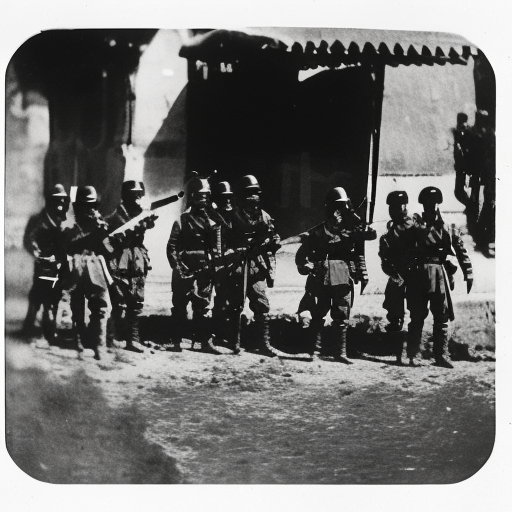The Balkan Wars: A Comprehensive Summary
The Balkan Wars were a series of conflicts that took place in the Balkan Peninsula between 1912 and 1913. These wars were fought by several Balkan states, including Serbia, Montenegro, Greece, and Bulgaria, against the declining Ottoman Empire. The main objective of the Balkan states was to gain independence and expand their territories at the expense of the Ottoman Empire.
Background:
The Ottoman Empire had been in decline for several decades, losing territories and facing internal unrest. The Balkan states, inspired by the successful Greek War of Independence in the early 19th century, sought to take advantage of the empire’s weakness to assert their own independence and territorial ambitions.
The First Balkan War (1912-1913):
The First Balkan War began in October 1912 when the Balkan League, consisting of Serbia, Montenegro, Greece, and Bulgaria, launched a coordinated attack on the Ottoman Empire. The alliance quickly achieved significant victories and managed to push the Ottomans out of most of their European territories.
- Serbia focused on capturing Kosovo and parts of Macedonia.
- Greece aimed to liberate Greek-speaking regions, including Thessaloniki.
- Bulgaria sought to regain territories lost in previous conflicts with the Ottomans.
- Montenegro aimed to expand its territory in the region.
The Balkan League’s success led to tensions among its members, as each state sought to maximize its gains. Disputes over territorial claims, particularly between Serbia and Bulgaria, eventually led to the outbreak of the Second Balkan War.
The Second Balkan War (1913):
The Second Balkan War began in June 1913 when Bulgaria, dissatisfied with the territorial division of the First Balkan War, launched an attack on its former allies, Serbia and Greece. However, this time, Bulgaria faced a united front as Romania, Turkey, and Montenegro joined Serbia and Greece in opposing Bulgarian aggression.
- Romania aimed to seize Bulgarian-controlled territories in northern Bulgaria.
- Turkey sought to regain lost territories in Thrace.
- Montenegro aimed to expand its territory further.
The Second Balkan War was short but intense, with heavy casualties on all sides. Bulgaria was quickly overwhelmed by the combined forces of its former allies and the new entrants. The Treaty of Bucharest was signed in August 1913, which marked the end of the war and the final territorial adjustments.
Consequences:
The Balkan Wars had significant consequences for the region and Europe as a whole. The Ottoman Empire lost almost all of its European territories, leaving only a small area around Istanbul. The Balkan states, on the other hand, gained independence and expanded their territories.
However, the territorial disputes and rivalries among the Balkan states were not fully resolved. The Balkan Wars sowed the seeds of future conflicts, including World War I, as the unresolved tensions and territorial ambitions of the Balkan states continued to simmer.
The Balkan Wars also had a profound impact on the Ottoman Empire. The empire’s loss of territory and the humiliation it suffered during the wars further weakened its already fragile state. This paved the way for the eventual collapse of the empire and the emergence of modern Turkey.
In conclusion, the Balkan Wars were a series of conflicts fought by the Balkan states against the Ottoman Empire between 1912 and 1913. These wars resulted in significant territorial changes in the region and had far-reaching consequences for both the Balkan states and the Ottoman Empire.












